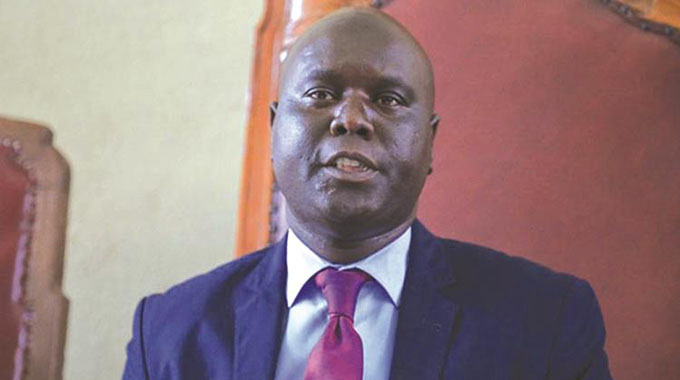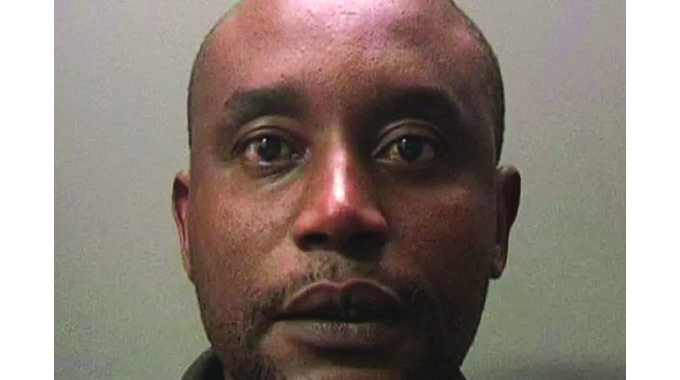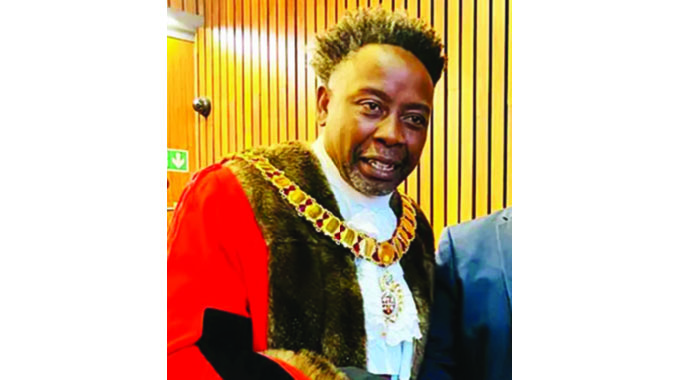Idai effects spark non-communicable diseases increase

Paidamoyo Chipunza Senior Health Reporter
There are diseases of long duration and generally slow progression known as chronic conditions in medical terms.
According to the World Health Organisation (WHO), they are by far the leading causes of death worldwide, accounting for an estimated 63 percent of all annual deaths.
Ideally, their rise is primarily driven by tobacco use, physical inactivity, harmful use of alcohol and unhealthy diets.
However, against all odds, non-communicable diseases (NCDs) in Chimanimani and Chipinge districts were triggered by effects of Cyclone Idai, which struck the Manicaland Province in March this year, claiming hundreds of lives and destroying public and private infrastructure worth over an estimated US$622 million.
“It was around 7:20pm when the first patient walked in with a baby on her back.
“They were both naked, muddy, bloody, crying and so much distressed.
“There was no electricity for almost two days and we also didn’t have candles that night, we had to use our cellphone lights to see exactly what was happening,” said Ms Angeline Dhodlo, a pharmacy assistant at Chimanimani District Hospital.
She said using cellphone torches, they started suturing these first patients, although they were still confused on what was happening in the community. In no time, more patients started trickling in for assistance.
“As patients kept coming in, I couldn’t resist the thought of what was happening at my own home. I had left my three children alone. However, the night was busy and since we were still few on duty, I failed to contact anyone at home to establish their safety. I tried to keep focused, but with a divided attention,” said Ms Dhodlo.
She said it was only around 6am that she got hold of her neighbour, who informed her that homes had been destroyed, including hers.
More so, one of her children, Columbus was missing.
“That send me into a panic mode. All my joints became weak, I hang up the phone, sat down and started crying.
“I couldn’t go home because the roads were flooded and impassable. It was a difficult time for me,” she said.
Ms Dhodlo said on the other hand, patients kept coming in, and they also brought dead bodies. She said around 10am, she was informed that Columbus had returned home after spending the whole night stuck on a hill close to their home. Eventually, she said all her children were brought to the hospital and were housed in the waiting mothers’ shelter for some time before they were moved to the holding camp at Nyamatenda, a place they are still struggling to familiarise with.
“Each morning when I wake up to the sight of these tents, I feel demoralised. I used to have a 10-roomed house. Sometimes I cry, but then many people in the holding camp also look up to me for counselling.
“I try to be strong, but it is really difficult. Here at work, I try to be like everyone else, but still deep inside am hurting,” she said struggling to hold back her tears.
“The work I do here is mind-involving. You really need to be stable to dispense the correct medicines to patients. I am really trying to do exactly that because I also need the job to take care of my children.”
Ms Dhodlo is one of the victims who is now on high blood pressure treatment since March 15. Mr Oncemore Ndumiana, whose family was among the first patients to receive treatment at Chimanimani District Hospital, said he has since developed high blood pressure and diabetes from the double tragedy he suffered of losing a home and a child in one night.
“My son was 12 years old. He was an intelligent boy who exhibited all signs of success later in his life. His death was a big loss to my family.
“Losing a house and everything we had worked for all these years has also not been easy for me,” he said.
He said just last Sunday, it started raining again and the rains were windy, almost similar to how the March 15 disaster started, thereby unsettling many families.
“The March 15 wounds are still fresh, some of us are still living in tents. We lost homes, children and we were caught up in the floods in one way or the other. Any signs of rains at the moment open up fresh wounds,” he said.
Ellen Chemwanyisa (not her real name) is a University of Zimbabwe Bachelor of Education graduate. She is a teacher at Chimanimani High School and a mother of two.
However, when one sees her at Ngangu Shopping Centre in Chimanimani holding a pint of beer as early as 8am already exhibiting signs of excessive intoxication, and attempting to cover her torn skirt by wrapping a jersey around her waist, Chemwanyisa paints a different picture altogether.
“She is now an emotional wreck. She survived the effects of Cyclone Idai, but sadly lost her house in the disaster. She is also staying in the tents at one of the holding camps.
“She has always loved her beer, but it got worse after the cyclone,” said Mukoma Farai, who runs a backyard restaurant at Ngangu shops.
“The moment she states March 15, you know she is losing her mind. Sometimes she even speaks obscenities. She gets worse when she receives her monthly stipend of US$70. She drinks to the extent of forgetting to go for classes,” added Mukoma Farai.
He said if she is sober, Chemwanyisa is normal just like any other person, but she now seems to be drowning her emotions in beer — a practice that has become her habit after the cyclone.
“You said you will give me a house, where is the house?” was one of the questions Chemwanyisa posed when journalists tried to initiate a conversation with her.
These are sad stories of some of the many people who suffered psychological trauma, some of whom developed chronic conditions as a result of Cyclone Idai, and are in need of extensive counselling.
Health officials from Chimanimani and Chipinge district hospitals as well as surrounding clinics concurred that the number of NCDs, particularly high blood pressure, diabetes, chest pains and psychological disorders increased post Cyclone Idai. A sister-in-charge at Chimanimani District Hospital Ms Tendai Masvaure said: “We have recorded an increase in the number of non-communicable diseases, especially among people who were caught up in the cyclone.
“Unfortunately, the supplies of medicines we are receiving is far less than the burden on the ground.”
Sister Masvaure said they have now resorted to giving patients with such conditions, especially high blood pressure, 10-day supplies of medication, instead of one month supplies.
Muchadziya Clinic nurse-in-charge Mr Tatenda Zuze had this to say: “An inquiry into some of the cases that were presented here showed that most people were worried about their future, thereby, triggering these non-communicable diseases such as high blood pressure.”
He said they were also having challenges with medicine supplies for the diseases as demand was skyrocketing. Chipinge District medical officer Dr Ozimmo Matekenya said such cases were many, but argued that they were under-diagnosed since psychological trauma was difficult to diagnose and even treat.
“Psychosocial trauma is a big challenge. It is very difficult to diagnose or even to treat, but indeed, we are getting patients with post-traumatic stress disorders secondary to Cyclone Idai. These are the patients with psychological derailment following loss of a loved one or loss of property, and it is a very big challenge, but we cannot measure it because most of the cases are under-diagnosed or difficult to diagnose,” said Dr Matekenya.
He said cases range from mild to severe forms of depression.
“We had a case involving a patient, who had a severe form of depression because she saw her mother dying in the floods, but couldn’t help her; so these cases are there,” he said.
Dr Matekenya said while some patients end up in health institutions for assistance, other cases go unnoticed and unreported because victims won’t be aware that they have depression.
Manicaland provincial medical director Dr Patron Mafaune said most of the patients being treated of non-communicable diseases were getting medication from private pharmacies.
She said with support from the WHO, Government intervened with an assortment of NCDs medicines, which were enough to cater for about 10 000 patients, but since most of the ailments are chronic, the medicines were not enough.
“While our health system is well-resourced in terms of communicable diseases, in particular TB, HIV and Aids and malaria, we also have serious challenges with non-communicable diseases, as such, patients are buying medicines from private pharmacies,” said Dr Mafaune.









Comments